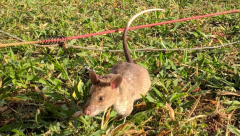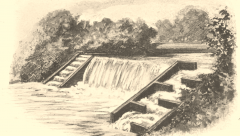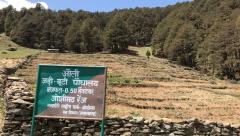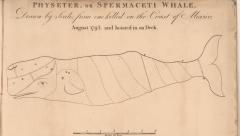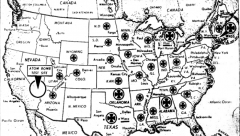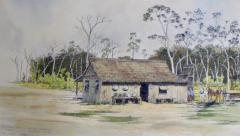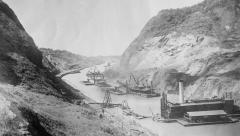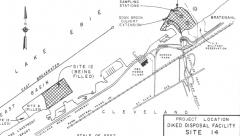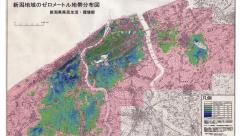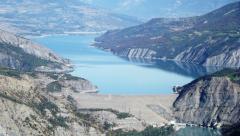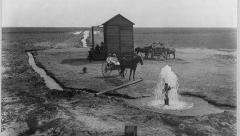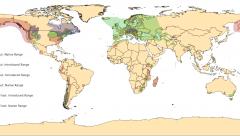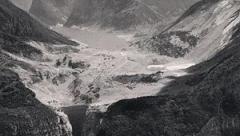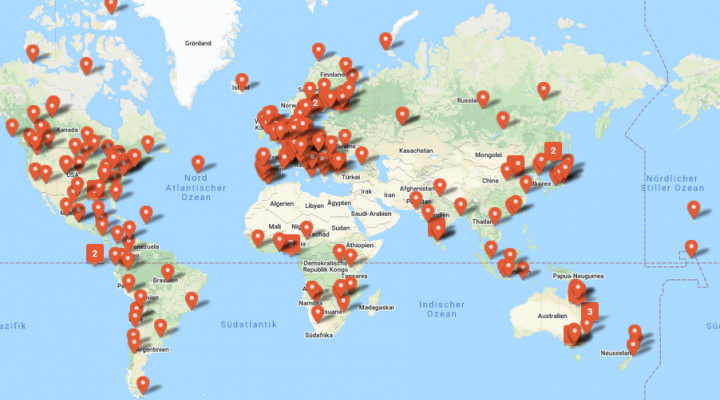About this collection

Carajas, Brazil. The cattle sector of the Brazilian Amazon, incentivized by the international beef and leather trades, has been responsible for about 70 percent of all deforestation in the region, or about 14 percent of the world’s total annual deforestation, making it the world’s largest single driver of deforestation.
Carajas, Brazil. The cattle sector of the Brazilian Amazon, incentivized by the international beef and leather trades, has been responsible for about 70 percent of all deforestation in the region, or about 14 percent of the world’s total annual deforestation, making it the world’s largest single driver of deforestation.
Photograph by Sentinel Hub. Modified by William San Martín, 2020.
Original image accessed via Flickr on 11 June 2020. Click here to view source.
 This work is licensed under a Creative Commons Attribution-ShareAlike 2.0 Generic License.
This work is licensed under a Creative Commons Attribution-ShareAlike 2.0 Generic License.
The history of environmental change is entangled with the history of technology and technoscientific expertise. Technical instruments to assess and manage environments have been critical in human evolution ever since we have inhabited Earth. The rise of Earth System and Sustainability Sciences in scientific and policy circles, as well as the expansion of concepts across academic fields such as Planetary Boundaries, the Great Acceleration, and the Anthropocene, all reflect a dual role of technology in global ecological change. Technology has been fundamental in accelerating socio-ecological change across regions and ecosystems, and, at the same time, it has also been fundamental in developing the instruments we use to apprehend the scale, sources, and impacts of those changes.
Environmental historians and scholars of science and technology have cultivated a growing interest in how their respective disciplines can contribute to the understanding of this dual role. As part of these discussions, “Envirotech” has arisen as a new field at the intersection of the history of technology, science and technology studies, and environmental history. Addressing various aspects of the entangled nature of technology and environmental degradation, the field has expanded in academic circles, particularly in the North Atlantic and in English-speaking countries. At the same time, the concept of Envirotech has also served tech companies to describe a variety of environmental testing and monitoring instruments, energy efficiency technologies, and other “green” or “clean” technologies aimed to respond to the complex ecological crises of the twenty-first century. Unlike accounts focused on technology-induced environmental destruction, the rise of Envirotech in business and corporate narratives embraces a profound faith in the role that technology has in leading the way to a more sustainable future. Many of these narratives have become part of policy circles—including energy and agricultural transitions, smart cities infrastructure, and AI in environmental assessments and policy. These divergent roles of technology across the academic, industry, and policy sectors leave unresolved questions about the place of technical instruments and knowledge in facing challenges at the intersection of sustainability and development.
This collection explores the place of technology and technical expertise in human-nature interactions and in how we manage, govern, and apprehend environmental change across time and space. It calls for a more explicit dialogue about how technologies and expertise have shaped these interactions within and beyond scientific and technological centers in the so-called Global North. It questions universalizing narratives about the place of technology and technology experts and invites conversations that address issues of colonialism, race, and inequality across the developed and the developing world. It calls attention to how technologies and expertise, as well as their role and impacts, differ across cultures, political systems, and regions. Finally, it urges questions about the multiple ontologies, epistemologies, and agencies that have shaped assemblages across and between species, technologies, and ecosystems. We particularly welcome contributions that address these relationships in a particular place and time, but also contribute insights into broader processes of change.
Some of the topics that this collection welcomes, but is not restricted to, include:
Engineering, infrastructure, and development projects • Green technologies and the circular economy • Energy and agricultural transitions • Smart cities • Space explorations and orbital debris • Marine sciences and biotechnology • Weather and climate geoengineering • Geology and fracking • Race, risk, and environmental justice • Quantifications and metrics • Information technologies and telecommunications • Waste recycling, disposal, and management • Extractive economies • Growth, degrowth and sustainable development policy • Biomedicine and public health technologies • Indigenous knowledge, innovation, and environmental management • Non-western science and knowledge • Molecular biotechnologies and techniques • Environmental sensing and monitoring technologies • Econometric modeling of ecological systems • Big science and big data • AI, computing, and modeling techniques • Smart home technologies • Speculative techniques in environmental design and innovation • Infrastructure, architecture, and urban planning • Environmental management and ecosystem services • Natural resource economics • Wildlife monitoring and management • Environmental movements and environmentalism • Environmental assessments, agreements, and governance.
The collection is curated by William San Martín (Worcester Polytechnic Institute, USA).








